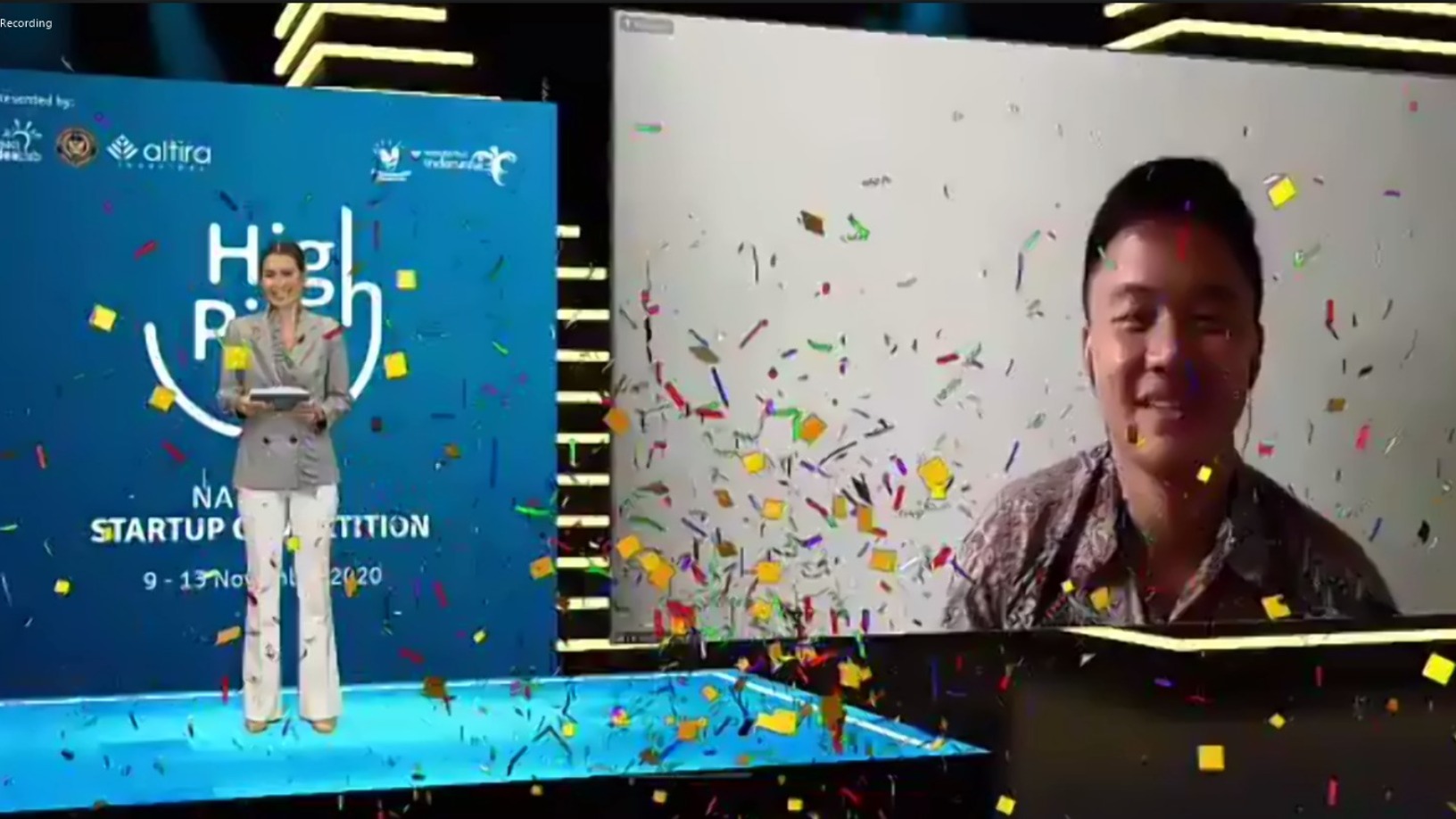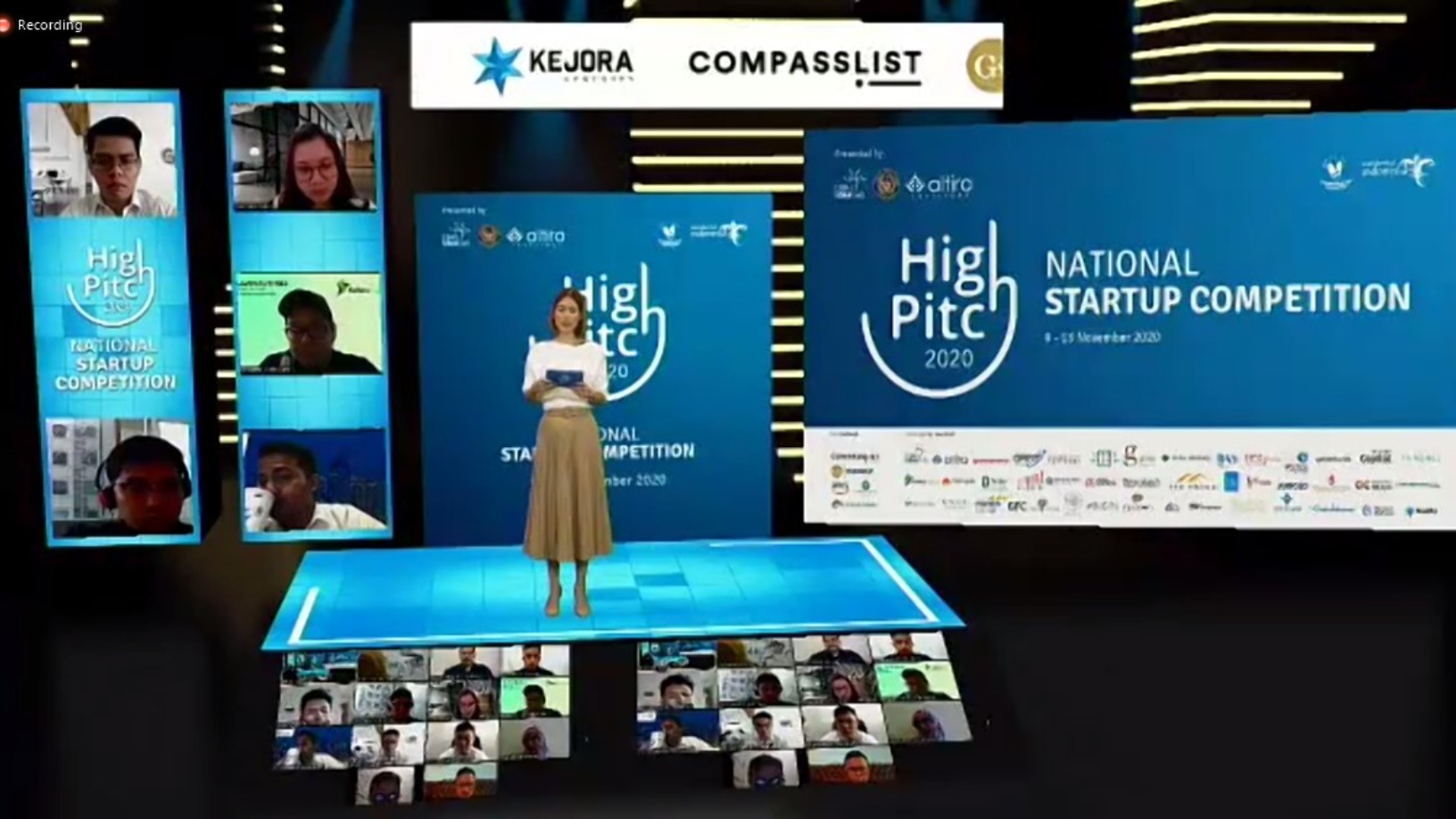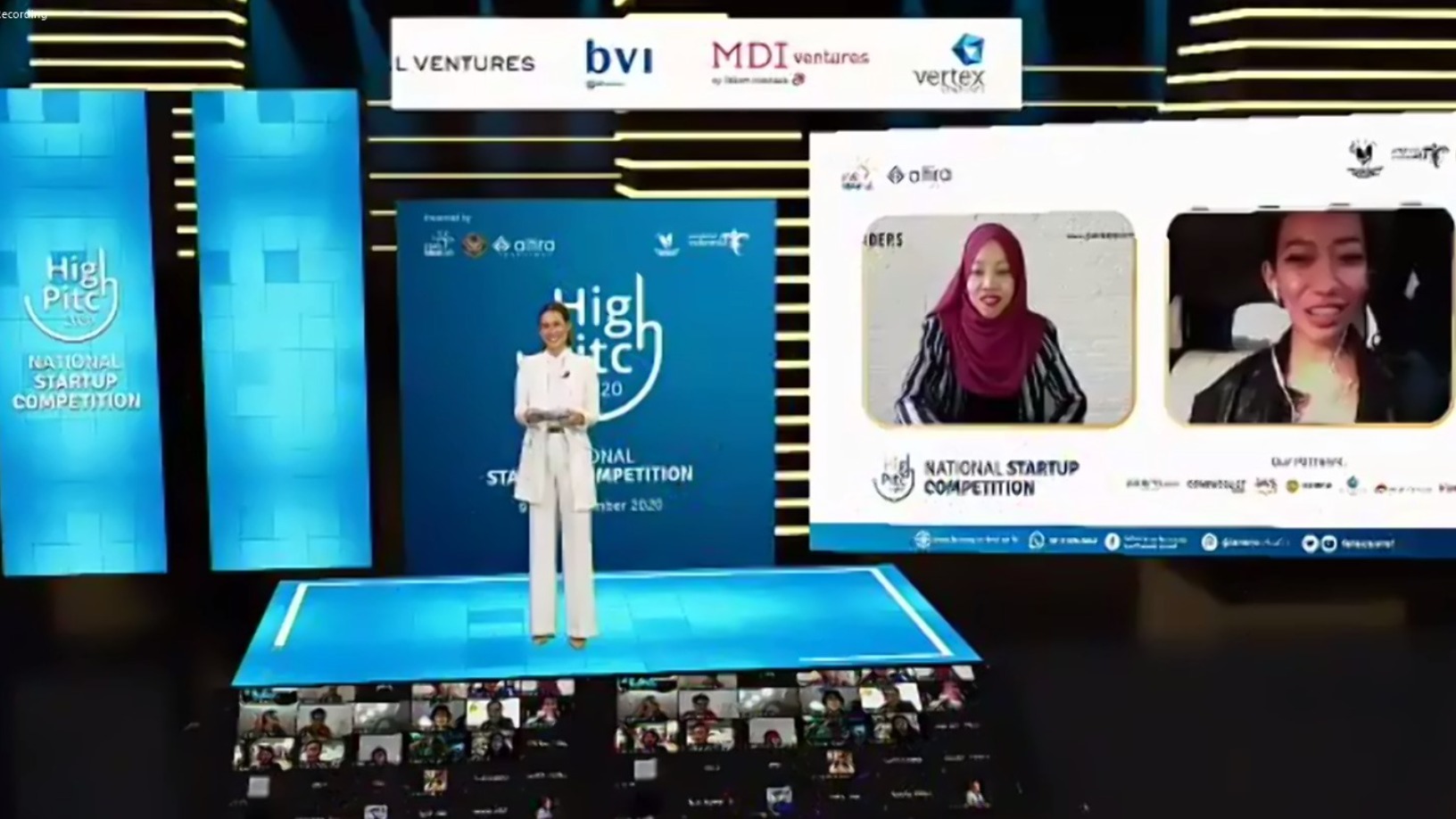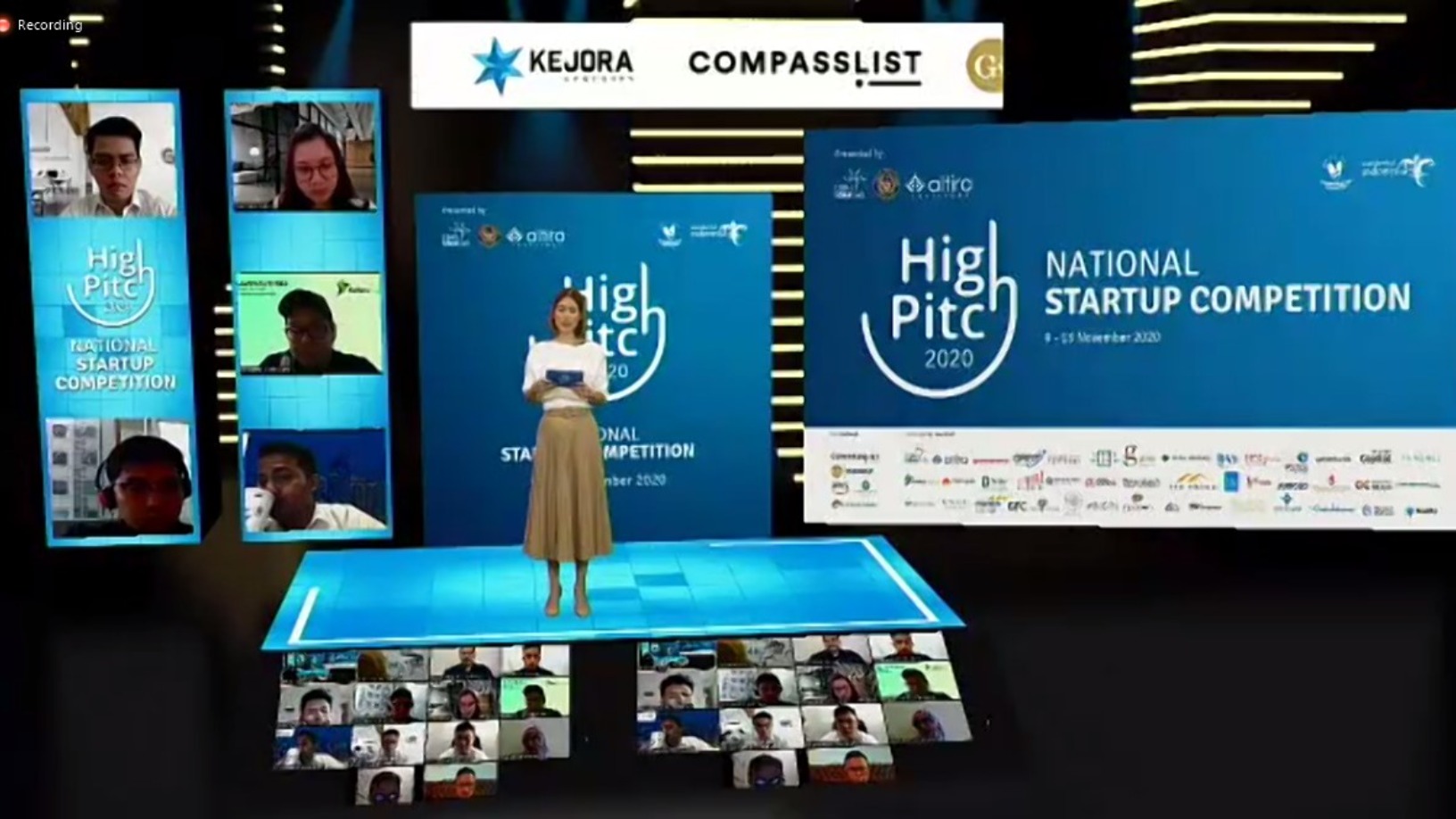Solar cell startup Flexel and on-demand lab testing service CekLab.id claimed the top two spots of the Yogyakarta chapter on the third day of the HighPitch 2020 startup pitch competition on November 11.
Flexel, which was founded in 2019 and is backed by tech startup incubator UMG Idealab, is developing a thin, flexible graphene-based photovoltaic cell that can be used in a number of mobile applications. The startup plans to complete its prototype by end-2020.
The other winner, CekLab.id, also founded in 2019, provides an on-demand, at-home service for those who need health-related lab testing. CekLab does not do the testing. It collects the samples, finds the best prices among labs and hospitals, sends the samples and provides the results. Its revenue surged during the pandemic from the increased demand for Covid-19 tests.
Flexel and CekLab competed against eight other early-stage companies from the Yogyakarta chapter of the competition, which covers Central Java, Yogyakarta, and East Java provinces. They will now represent the Yogyakarta chapter in the national finals on November 25 following a preparatory bootcamp.
Investors on the panel of judges praised the wide variety of ideas and technologies presented during the day’s competition. Besides trending areas like big data analytics and online marketplaces, the Yogyakarta chapter presented startups like AutoConz, which is developing 3D printing for the construction industry and Tiny Lab, which is creating a miniaturized setup for polymerase chain reaction (PCR) tests. Agritech and aquaculture were represented by IoT startups MSMB and FishGator, which provide tools for sensing important parameters on farmland and fishery ponds, respectively.
HighPitch is jointly organized by Indonesia’s Ministry of Tourism and Creative Economy (Kemenparekraf/Baparekraf) and investors UMG Idealab and ALTIRA.
Flexel: Wearable, mobile solar cells
Flexel founder, Felix Pasila, told CompassList in a post-event interview that he decided to develop flexible, transparent graphene-based solar cells integrated into electronic gadgets and appliances to deal with the battery waste problem after considering many possible solutions since 2018.
Pasila envisions a future in which graphene solar cells are even worn on apparel and accessories by the younger generation in Indonesia to keep their devices charged while out and about.
Meanwhile, the company is aiming to complete its prototype by the end of this year and develop its first MVP, namely, smartphone charging cases that will slowly charge the phones while exposed to light. To reduce waste, the cases will not have batteries to store power. Pasila claims that the charging cases will help preserve battery life by slowly charging the phones throughout the day instead of making use of fast-charging features.
By 2025, Flexel hopes to either mass-produce solar cell-equipped phone casings or sell the manufacturing license to major smartphone makers, such as Apple and Samsung. Flexel will explore small-scale production options after it develops the prototype.
“We are not just going to sell smartphone casings but also a solution to reduce the environmental impacts of battery waste," Pasila said. “I think all [phone] manufacturers will be interested because it will be crucial in developed markets like Europe where they will be asked how they are making their products environmentally friendly.”
CekLab.id: At-home lab tests
CekLab was founded in 2019 by medical doctor Caesar Givani and software developer Ivan Sinarso. Givani noticed a demand for quick and efficient lab tests from patients with chronic illnesses or mobility issues and others with a growing awareness of health issues like genetic risks and sexually-transmitted diseases. Patients, he found, were willing to pay a premium to get their samples collected at home and obtain results quickly.
Being an aggregator and not a lab, CekLab is free to select the hospital or private lab that provides the best service at the lowest price. This agility, said Givani, allows CekLab to gain clients from individual customers and corporates alike. Givani does not view private labs as competitors. “They need us and we need them; they have the testing tools, we have the market.”
“If another lab created their own at-home service, they will only be able to test using their own services; they cannot sell other lab's products. We are free to pick and choose the best prices for each type of test.”
CekLab is available in major Indonesian cities, including Greater Jakarta, Yogyakarta and Surabaya. However, the startup is now constrained by the number of certified personnel who can collect samples from clients at home. CekLab aims to raise $500,000 in return for a 10% stake in the company to establish local bases, train more certified sample collectors and attract more lab partners.
The startup also wants to explore the potential of AI to expand its product offerings. AI could be used to predict if a mole is potentially a malignant tumor or to perform other types of visual diagnosis, Givani said. AI-powered analytics could also be used to screen for disease onset and recommend personalized health checkup programs, which can help patients prevent or treat illnesses at an early stage and save on healthcare costs, he added.
More structured, confident pitches needed
After the day’s event, CompassList spoke with a number of VC representatives on the panel of judges. Ajay Taunk, Senior Associate at Wavemaker Partners, and Gabriella Thohir, Investment Analyst at Skystar Capital, were on the panel for the second session, where they selected Flexel as a finalist. Other VCs present in the second session were Aavishkaar Capital, Indogen Capital and Monk’s Hill Ventures.
Both Taunk and Thohir commented that there was room for improvement in the structure of the startups’ pitches in the competition. Taunk suggested they could start with how their team met and why they decided to start the company, followed by the problem they are trying to solve and the solution. The companies should also provide some examples of market traction, he added.
Thohir also said she wanted to see more clarity on the problems that startups are trying to solve, as well as the team’s background. “Good ideas come and go; ultimately for us, investors, we’re not just betting on how good the idea is, but also whether the team has the right background and experience to execute the idea.”
Nisrina Firyal Fadhlannisa, Analyst at Venturra Discovery, was on the panel for the first session alongside representatives from 1982 Ventures, ANGIN, Jungle Ventures, and Golden Gate Ventures. Her advice for startups is to practice their pitch often and introduce themselves to investors as often as possible.
“Some people are natural storytellers; others excel behind the curtains,” Fadhlanissa said. “But the most important thing is to make yourself comfortable. Practicing in front of the mirror can help, but it’s also important to go through trial and error, talking to many investors and introducing your company to them.”
CompassList is the official media partner of the HighPitch 2020 National Startup Competition.











